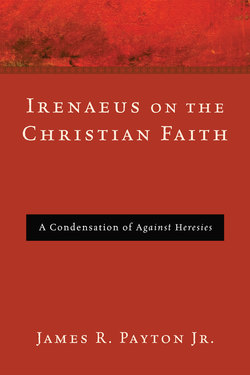Описание книги
Irenaeus of Lyons (c. 130-202) was the greatest theologian of the early post-apostolic church. In his writings we have access to the Christian teaching of a spiritual grandson of the apostle John, for Irenaeus' instructor in the faith was himself taught by the apostle. Irenaeus stresses the importance of apostolic teaching and faithfully handing on the apostolic tradition. His presentation of the Christian faith deserves careful attention, since he knew exactly what he was talking about. There is no better avenue to the apostolic tradition in the early church than his writings.
Irenaeus' massive Against Heresies offers a winsome and compelling presentation of the Christian faith, but few have read this magnum opus since the first two of its five books focus on exposing and answering Gnostic heresies, and the only complete English version is difficult to read.
This volume eliminates both these obstacles. James Payton has condensed Against Heresies by cutting out most of the interaction with the Gnostics, allowing Irenaeus' rich presentation on the Christian faith to shine through. Furthermore, the author has refurbished the English prose to make it accessible to contemporary readers.
With this distillation readers now have access to Irenaeus' rich presentation of the Christian faith, saturated in a thorough knowledge of Scripture and steadfastly rooted in the apostolic tradition of the early church. Anyone who wants to know what the early Christian church had received and passed on from the apostles can do no better than to begin with this book.
Irenaeus' massive Against Heresies offers a winsome and compelling presentation of the Christian faith, but few have read this magnum opus since the first two of its five books focus on exposing and answering Gnostic heresies, and the only complete English version is difficult to read.
This volume eliminates both these obstacles. James Payton has condensed Against Heresies by cutting out most of the interaction with the Gnostics, allowing Irenaeus' rich presentation on the Christian faith to shine through. Furthermore, the author has refurbished the English prose to make it accessible to contemporary readers.
With this distillation readers now have access to Irenaeus' rich presentation of the Christian faith, saturated in a thorough knowledge of Scripture and steadfastly rooted in the apostolic tradition of the early church. Anyone who wants to know what the early Christian church had received and passed on from the apostles can do no better than to begin with this book.
